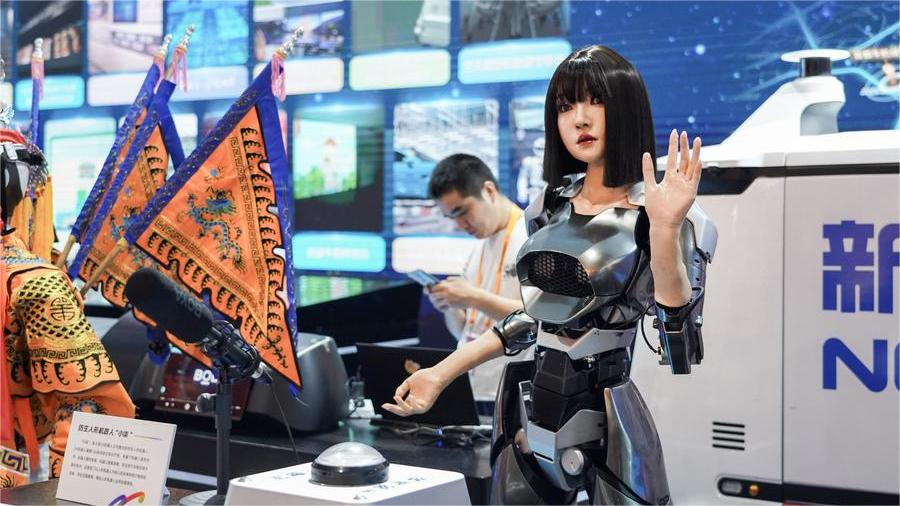Deputies strive to heed, meet people's needs
Upon hearing the recent story of an elderly couple having to climb 17 stories in the sweltering heat after the elevator in their apartment building broke down in Kunshan, Jiangsu province, local lawmaker Jiang Yuqin sprang into action.
Jiang, along with concerned colleagues and maintenance workers, visited the property in the Zoujiajiao community on Aug 28 and discovered that the elevator was old and damaged.
Repair and maintenance work was immediately ordered for all elevators in the community, and Jiang visited the couple, who are both almost in their 80s, to seek their suggestions on how to better improve the safety of various community facilities.
"This is all part of my routine in serving the community, and also my duty as a deputy to the Suzhou People's Congress," said the 47-year-old.
In China's political system, the people exercise State power through the National People's Congress, the country's top legislature, and people's congresses at provincial, city, county, and township levels, ensuring that their interests are reflected in the decision-making process. This year marks the 70th anniversary of the establishment of the NPC.
Data released by Xinhua News Agency in March showed that there were over 2.7 million people serving as deputies across the five levels of people's congresses in China, including nearly 3,000 deputies to the NPC.
Deputies in China's people's congress system are tasked with engaging and interacting with local people and communities to best understand their needs, and seek their suggestions on a range of issues so that the deputies can present their views in the congress. This format of governance is referred to as whole-process people's democracy.
This engagement with people and communities is ever expanding with the use of online services as well as face-to-face interaction, Jiang said.
Enriching the ways of connecting deputies with the people was called for by President Xi Jinping while he was delivering an important speech on Saturday at a meeting to celebrate the 70th anniversary of the founding of the NPC.
Xi, who is also general secretary of the Communist Party of China Central Committee and chairman of the Central Military Commission, said that people's congresses at all levels should support deputies in performing their duties and helping them enrich the ways they connect with the people.
Noting that the people's congress system is an important institutional guarantee for realizing whole-process people's democracy, Xi urged people's congresses to put the people first, maintain close ties with the people, and listen to their suggestions and opinions.
He also called on deputies to fully exercise their duties, better serving as the bridge between the people and the country.
For a deputy like Jiang, the major obligation is to listen to people's ideas, provide a voice for them, and help them solve difficulties in their work and life.
"I came from the people and was elected by the people," said Jiang.
To provide some 10,000 people in the residential area with more convenient channels to raise their problems and submit advice, she has posted QR codes at the gates of each apartment building.
By scanning the code, people can access an online platform where they can report any challenges they encounter, including broken lights in corridors or leaking pipes at home. Jiang and her colleagues are dedicated to tackling the problems within a few hours.
Although these online services have contributed a lot to her work efficiency, Jiang said that visiting households and moving around the community must be continued, as face-to-face conversations are always conducive to understanding more about the opinions of the people and figuring out the roots of their difficulties.
Simple or minor matters in the community can be addressed directly by Jiang and her team. But for complex issues beyond her capacity, she said that she will conduct surveys and submit suggestions to Suzhou's people's congress, and the city's legislature, to solve them through joint efforts or optimizing relevant regulations.
For example, after receiving complaints about the haphazard parking of electric scooters posing safety risks, Jiang quickly invited some residents' representatives and property staff to select locations within the community for organized parking of the vehicles, with the installation of additional charging facilities.
In another case, when she decided to assist stay-at-home mothers in seeking jobs after their children start school during the day, she said that this required a great deal of study and research.
"I need to know what time the women are available and what kind of work they are capable of. I also need to communicate with businesses around our community and find out if they are willing to provide opportunities for flexible employment," she said.
As she conducted her research, she realized that it is not just a minority of young mothers who want to reenter the workforce, so she is planning to solicit ideas and opinions from more women and employers, in order to form a suggestion on the issue and submit it to the city's legislature.
She said that the process has shown how the people's congress system works, since its sound operation is an important means to realizing whole-process people's democracy and also a key to guaranteeing the running of the country by the people.
Even as the ways of collecting people's opinions have become more diverse with the rapid development of internet technologies, Tang Renqing, 72, another deputy to the Suzhou people's congress, said that the principle of serving the people has never changed since the establishment of the system, nor can it be changed.
"Deputies, regardless of their profession or age, should be with the people, listen to their opinions, and help them solve problems through the system," he added. "Only in this way can we meet people's aspirations for a better life, and ensure that the people are the masters of the country."
Key channel for voices
The system is designed to include people from various backgrounds and cover a diverse cross-section of society. Working in a part-time capacity, deputies at each level are key channels for people's voices. They are both entitled and obliged to stand for the people's interests and express their views.
Since September 1954, when about 1,200 deputies elected by universal suffrage gathered in Beijing to attend the first session of the first NPC, the people's congress system has provided an important institutional guarantee that has allowed the CPC to lead the people in realizing fast economic development and long-term social stability.
In recent years, Chinese lawmakers have also stepped up efforts to further uphold and improve the system by amending the Legislation Law and rules for members of the NPC Standing Committee, with the adoption of a decision on increasing reviews of normative documents to ensure that they are consistent with the Constitution.
Photos
Related Stories
- Xi calls for promoting reform, innovation in Gansu
- President signs order awarding state honors
- China's top legislature concludes standing committee session
- Xi urges running people's congresses to good effect as political system's 70th anniversary celebrated
- Xi signs order awarding national medals, honorary titles to 15 individuals
Copyright © 2024 People's Daily Online. All Rights Reserved.









